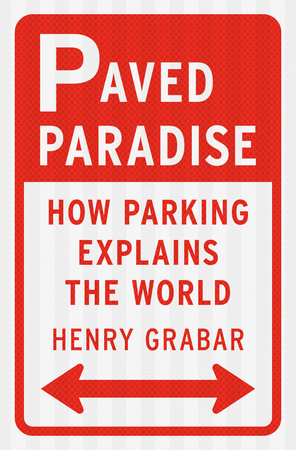From Paved Paradise: the paradox of parking enforcement. Which means... the status quo endures near the arena.
I recent read Henry Grabar's excellent book Paved Paradise: How Parking Explains the World, which helps explain one of the lasting conundrums related to the Barclays Center: the unwillingness and inability of city officials to enforce parking laws.
From the summary:
Grabar quotes "the trusted local news anchor Errol Louis," who wrote in a New York Daily News column how, under the popular broken-windows theory, “tolerating small crimes" leads to greater lawlessness--and it does.
Parking, quite literally, has a death grip on America: each year a handful of Americans are tragically killed by their fellow citizens over parking spots. But even when we don’t resort to violence, we routinely do ridiculous things for parking, contorting our professional, social, and financial lives to get a spot. Indeed, in the century since the advent of the car, we have deformed—and in some cases demolished—our homes and our cities in a Sisyphean quest for cheap and convenient car storage. As a result, much of the nation’s most valuable real estate is now devoted exclusively to empty and idle vehicles, even as so many Americans struggle to find affordable housing. Parking determines the design of new buildings and the fate of old ones, patterns of traffic and the viability of transit, neighborhood politics and municipal finance, the quality of public space, and even the course of floodwaters. Can this really be the best use of our finite resources and space? Why have we done this to the places we love? Is parking really more important than anything else?And in New York
These are the questions Slate staff writer Henry Grabar sets out to answer, telling a mesmerizing story about the strange and wonderful superorganism that is the modern American city. In a beguiling and often absurdly hilarious mix of history, politics, and reportage, Grabar brilliantly surveys the pain points of the nation’s parking crisis, from Los Angeles to Disney World to New York, stopping at every major American city in between. He reveals how the pathological compulsion for car storage has exacerbated some of our most acute problems—from housing affordability to the accelerating global climate disaster—ultimately, lighting the way for us to free our cities from parking’s cruel yoke.
Particularly relevant are some pages about parking privileges in New York City: Grabar recounts how "a major corruption investigation of city cops" ensnared real estate developer Jona Rechnitz, who got valuable free-parking placards after paying off various cops.
Grabar quotes "the trusted local news anchor Errol Louis," who wrote in a New York Daily News column how, under the popular broken-windows theory, “tolerating small crimes" leads to greater lawlessness--and it does.
However, as the author notes, "the city's politicians were themselves incorrigible placard abusers." And, as Streetsblog has reported, the NYPD often closes illegal parking complaints without any investigation.
Worse, the city chooses not to use technology to enforce parking. As Grabar writes:
The biggest problem remained the oldest one, the conflict that had haunted the meter maids since they hit the streets in 1960: the cops. As “Gridlock Sam” Schwartz noted, to protect the parking agents, the city had turned over enforcement to the one group that was most committed to illegal parking as a status symbol and a way of life. The same organization charged with enforcing parking rules was also the one that broke those rules the most often and most openly: the NYPD.As Gabar puts it, the "benefits of the placard system were concentrated within an influential bloc of city workers, not least the police themselves," while the harms were spread out.
Around the arena
The many parking and idling scofflaws near the Barclays Center during certain events are not necessarily placard holders (though some are).
But the general unwillingness to pursue enforcement is a decision made, I presume, at various levels: an aversion to committing resources beyond crimefighting, and an aversion to enforcement that might blow back on the NYPD itself.
So the status quo endures.

Comments
Post a Comment